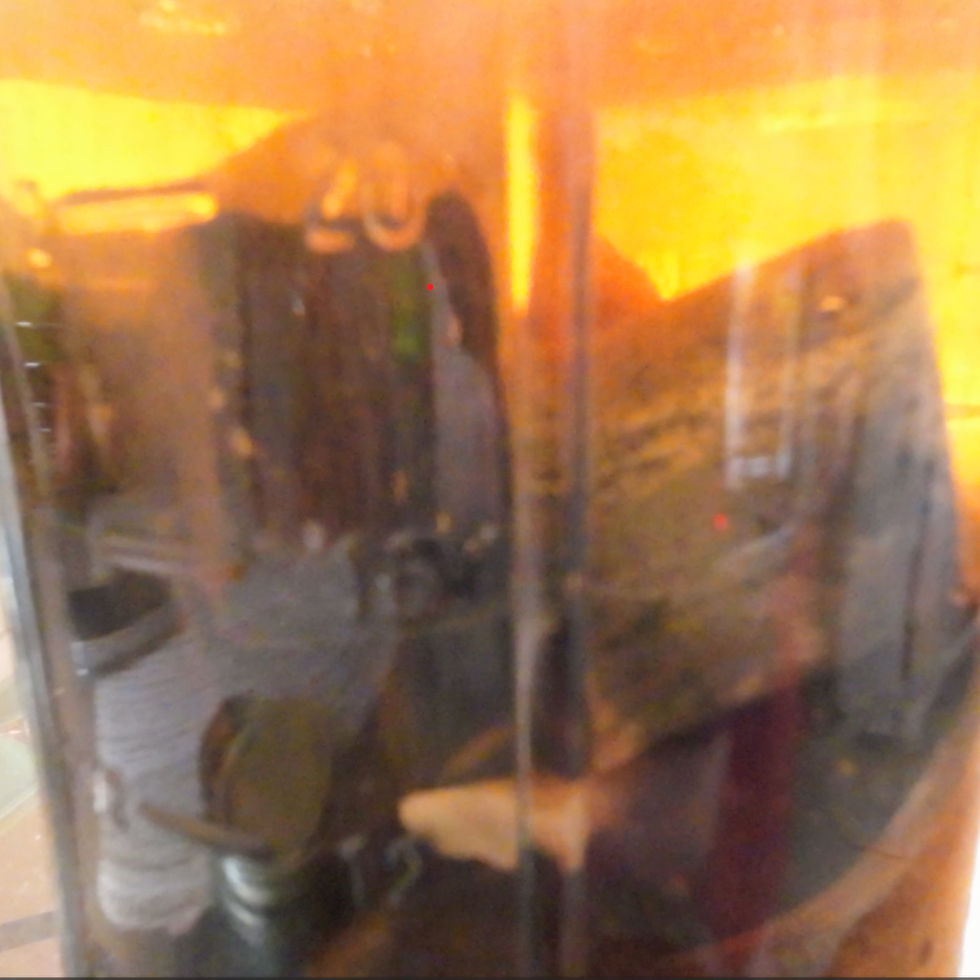TARGETED MINERALS FOR KNF
- Aug 28, 2025
- 3 min read

TARGETED MINERALS FOR KNF
In the practice of Korean Natural Farming (KNF), Seawater is used for a Full Spectrum Mineral approach. It ensures that all minerals are available in the food-growing system. In addition, we use a set of Targeted Minerals, which are added to formulas that follow the Nutritive Cycle to direct growth or to address specific mineral deficiencies. These Targeted Minerals are the focus of this article.
There is another KNF mineral technology, called Bacterial Mineral Water (BMW), that can be set up for either full-spectrum or targeted minerals. Since this is an advanced technology, we will not cover the details here.
Targeted Minerals inputs, unlike most other KNF inputs, are not fermented. They are made by leaching organic source materials found on or near the farm or garden. The two main mineral inputs are made using vinegar, while the other two are made using water.
TARGETED MINERAL INPUTS
INPUT SOURCE MATERIAL SOLVENT
WCA Water-Soluble Calcium Eggshells / Oyster Shells Vinegar
WCaP Water-Soluble Calcium Phosphate Bones Vinegar
WPA Water-Soluble Phosphoric Acid Sesame Stems Water
WP/WK Water-Soluble Potassium Tobacco Stems Water
Water-Soluble Calcium (WCa) and Water-Soluble Calcium Phosphate (WCAP) are used frequently in KNF and are part of the regular Nutritive Cycle formulas. By contrast, the phosphoric acid (WPA) and potassium (WP/WK) solutions are rarely needed and should only be applied when a true mineral deficiency exists. We will discuss these first.
PHOSPHORIC ACID AND POTASSIUM SOLUTIONS
A true deficiency means the soil lacks the mineral entirely, both in available and unavailable forms, or is otherwise deficient in the plant. In either case, plants will show physical symptoms of deficiency.
Standard soil tests measure only the portion available to plants, not the total mineral content present in the soil, and are not helpful in this case. If you have a good Soil Foundation, but the plant shows signs of deficiency, that is when you would use WPA or WP/WK.
These are the signs of deficiency to look for:
Phosphorus = dark/blue-green leaves, stunted growth, purple tinge, poor roots, and delayed maturity.
Potassium = edge burn, yellowing, weak stems, poor fruit fill.
When using WPA to help with a phosphorus deficiency, it is used as part of a formula, not used alone. When using WP/WK to help with potassium deficiency, it is to be used alone, without any other ingredients.
Details will be provided with the instructions for making and using WPA AND WP/WK.
CALCIUM AND CALCIUM PHOSPHATE SOLUTIONS
Calcium (WCA) and Calcium Phosphate (WCaP) are both part of the Nutrient Cycle formulas and inputs you will use often. WCa (Calcium) is generally used for the cross-over phases, from the end of vegetative growth, through flower set, fruit set, and fruit development. WCaP (Calcium Phosphate) is generally used in Soil and Seed Solutions, and the flower-set stage.
In advanced formulas, WCa is used as an ingredient for preventing feather loss in chickens, and WCaP is used as an ingredient for treating anthracnose.
Targeted Minerals in the Nutritive Cycle
WCa WCaP
SOIL - X
SEED - X
GROW - -
FLOWER X X
FRUIT X -
RIPEN X -
WCA WATER-SOLUBLE CALCIUM
Calcium Carbonate is the main component of eggshells and oyster shells. When Calcium Carbonate interacts with an acid, it produces carbon dioxide (CO2).
Acetic Acid, the major component of vinegar, is a weak acid, so it reacts very slowly and emits an imperceptible amount of CO2. With this process, we are leaching the calcium carbonate into the vinegar and producing a form of calcium that is water-soluble and is easily absorbed by plants.
WATER-SOLUBLE CALCIUM PHOSPHATE
Water-Soluble Calcium Phosphate (WCaP) is leached from the bones of vertebrate animals. It is an essential substance for plant growth and is widely distributed in the soil. Calcium Phosphate is insoluble in water but soluble in acids. This property is used in Natural Farming to make a product that is bioavailable to plants.
In the upcoming articles, we will look at steps for making and using targeted minerals for KNF.




Comments